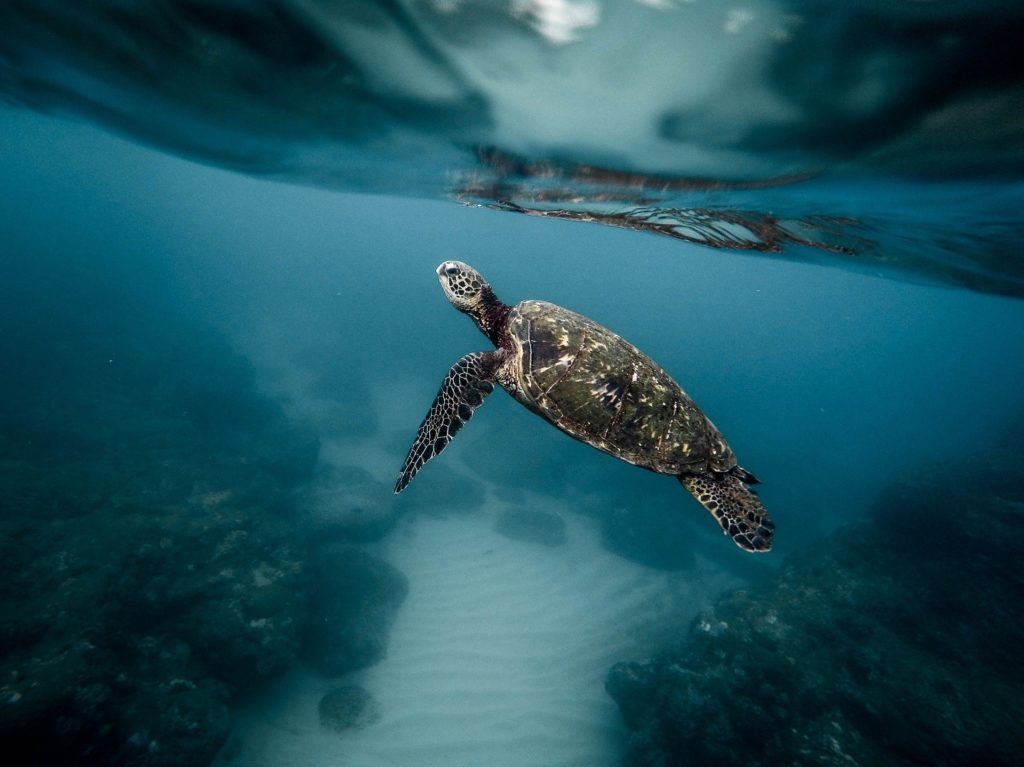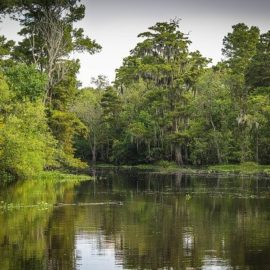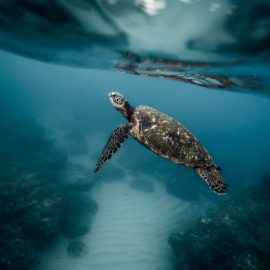
Susan Blackwell hesitated before setting a little sea turtle she called Proteus in the rolling waves along Grand Isle. “There was emotion involved because we’ve been with them so long,” the Audubon Nature Institute volunteer said. “But it felt good because this is where they belong.” On Monday, the first batch of 28 exceptionally rare and endangered Kemp’s ridley sea turtles were released into the Gulf of Mexico after almost freezing to death in New England, undergoing a harrowing cross-country plane and van trip and spending nearly four months at Audubon’s Coastal Wildlife Network rehabilitation center in Algiers.
Nola.com
The turtles seemed to know they were going home as the began to scratch their boxes prior to released. Their flipper started the movement to the water.
“They’re like, ‘Let me back in!’” said Gabriella Harlamert, a network rehabilitation coordinator.
The turtles arrived around Thanksgiving more dead than alive. They had washed up on Cape Cod having been trapped in the Cape Cod Hook when cold weather hit the area. The high winds kept them from leaving the area. The had both pneumonia and hypothermia. With only 22,000 Kemp’s ridley sea turtles alive they are the most endangered sea turtle. Their range is the East Coast and the Gulf but their breeding grounds are only in the Gulf.
Climate change is increasing the number of turtle strandings and cold-stunning events along the north Atlantic coast, said Kate Sampson, a turtle rescue coordinator with the National Oceanic and Atmospheric Administration. “The waters from the Gulf of Maine, which extends to Cape Cod, are warming up faster than 99% of the other water bodies in the world,” she said. “The turtles are coming farther north into that warmer water. That’s not a problem until temperatures drop in the fall and they can’t get away fast enough.” In the 1990s, turtle strandings on the Massachusetts coast ranged around 100 per year. “Now we’re getting about 600 per year,” Sampson said. “And this year, we were completely overrun.”
The number of turtles needing help overwhelmed the local and other East Coast rescue centers so some were flown to the Algiers site.
Jessica Regnante and her husband, Robert Tingley, agreed to fly 30 turtles tucked in banana boxes to New Orleans. It didn’t go as planned. “First, we were delayed by wind, and then there was the thunderstorm we kept trying to fly around,” Regnante said. “We were up there for so long.” Low fuel forced Tingley to make an unplanned pit stop in Chattanooga, Tenn. Upon touching down, something struck the propeller. “My husband heard a ‘ping’ and knew immediately what it meant,” Regnante said. “He said ‘Oh my gosh, we can’t take off again.’” With the plane grounded, frantic phone calls were made until someone reached the staff of the Tennessee Aquarium in Chattanooga. “It was the night before Thanksgiving, and everybody’s getting their turkey ready,” Sampson said. “But the aquarium staff – they jumped on it.”
After a night there, the turtles went by van to Tuscaloosa, AL where the Coastal Wildlife Network staff rushed them to New Orleans
They’ve received round-the-clock care ever since. Most of the turtles have grown strong enough to swim freely in the Audubon rehab center’s 5½-foot-deep tank. Two turtles didn’t recover. “They were really compromised when they came in, but saving 28 out of 30 was pretty good,” Harlamert said. Blackwell, the volunteer who released Proteus, had trouble letting go. “They just came from being warm and fed everyday, and now it’s off into the great unknown,” she said. “I’m 72, and I’ve had to let two kids go. You’d think it’d get easier.”
To see more pictures this was another story posted on NOLA.COM about the release



